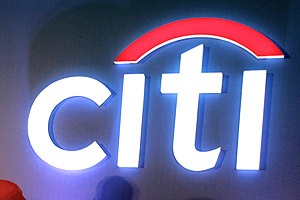India’s current account deficit (CAD) for the current financial year is expected to be $36.7 billion, or 1.8 per cent of GDP, despite a fall in exports and rise in imports, says a Citigroup report.
“We maintain our view of FY15 CAD at $36.7 billion (1.8 per cent of GDP), with risks balanced,” Citigroup said in a research note today.
As per the global financial services major, the risks appears to be balanced. Sharp drop in oil prices helped in containing imports at $39.5 billion and this in turn helped in offsetting weak exports.
Exports at $26.1 billion contracted for the first time in five months — across petroleum products, engineering goods, gems and jewellery.
“While petro-products account for around 23 per cent of total exports where crude prices have an impact, the slowdown in non-oil exports reflect global weakness and remains a concern,” the report said. This is the largest component in computing CAD is trade deficit.
India’s trade deficit widened to $13.35 billion in October as exports contracted 5.04 per cent and gold imports surged.
Exports entered the negative zone after a gap of six months during October.
The report said that stable CAD and slowing inflation are likely to be Indian rupee supportive.
While there could be occasional bouts of emerging market volatility, the adequate reserves ($316 billion) and long forward position (more than $8.4 billion by end September) built by RBI is likely to help contain the volatility, the report said.
“We expect Indian rupee to remain anchored around its fair value of 60-62,” Citigroup said.
The rupee is currently hovering around Rs 61/US dollar level.
According to Citigroup estimates, the FY15 average for crude is $100/bbl and if oil prices stay at current levels the net oil import bill would be lower by $4.5/bbl.
Exports on the other hand could be slightly weaker (FY15 growth assumed at 7.5 per cent), given weak demand conditions in Europe and China which account for 28 per cent of exports.
FM Arun Jaitley’s thoughts, actions augur well for economy, equities: Citi
Government’s reform measures on GST, labour and land acquisition laws should augur well for the economy and equity markets, global brokerage firm Citigroup said today.
It said there is a lot happening that should see the light soon with respect to Goods and Services Tax (GST), land acquisition law modifications and changes to labor laws.
“The FM’s thoughts and actions should augur very well for India’s economy and its equity market,” Citigroup said in a report on Finance Minister Arun Jaitley’s meeting with investors yesterday.
“We were impressed … believe the market should be too,” Citigroup said, adding the government has cleared environmental backlog, FDI in defence and railway infrastructure and diesel deregulation.
Also the resolution to coal sector problems and opening up of commercial mining and planned increased in FDI cap in insurance sector have buoyed market sentiments.
“Action does speak louder than words. The market and mood have moved up … on expectations yes, but on a lot of action too,” it said.
The Minister sees high cost of capital, domestic bank financing, legal framework for contract enforcement and the weak global environment as challenges, it added.
